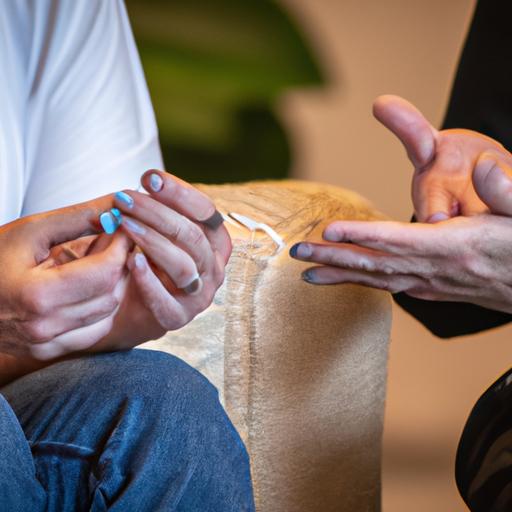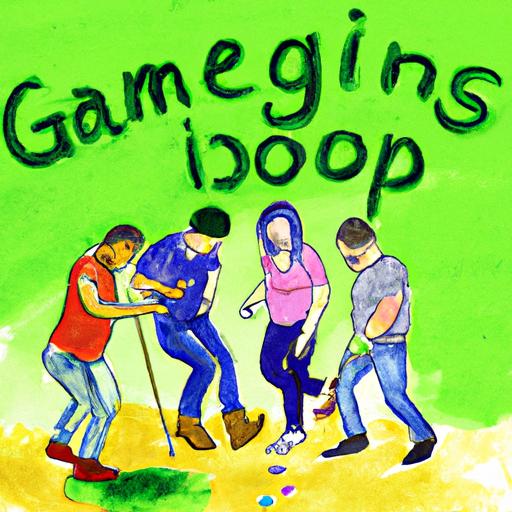Gambling Addiction: Signs, Effects, and Treatment Options
Introduction
Gambling addiction is a growing concern that affects individuals across the globe. It is characterized by an uncontrollable urge to gamble, leading to detrimental consequences in various aspects of a person’s life. Understanding the signs, effects, and treatment options for gambling addiction is crucial in addressing this issue and providing support to those in need.

Signs of Gambling Addiction
Identifying the signs of gambling addiction is the first step in helping individuals struggling with this problem. Some common indicators include:
Increased frequency of gambling
People with gambling addiction often find themselves spending more and more time engaged in gambling activities. They may prioritize gambling over other important aspects of their lives, such as work, relationships, or personal responsibilities.
Preoccupation with gambling
An individual with a gambling addiction may have an obsessive preoccupation with gambling. They might constantly think about their next gambling opportunity, strategies to win, or ways to obtain more money for gambling.
Inability to control gambling behavior
One of the key signs of gambling addiction is the inability to control or stop gambling despite negative consequences. Even when facing financial difficulties or strained relationships, individuals with a gambling addiction find it challenging to resist the urge to gamble.
Neglecting personal and professional responsibilities
Gambling addiction often leads to neglecting personal and professional responsibilities. Individuals may start missing work, neglecting their families, or failing to fulfill their obligations due to their excessive gambling habits.
Financial problems due to gambling
Financial difficulties are a common consequence of gambling addiction. Individuals may find themselves in significant debt, borrowing money from others, or resorting to illegal activities to finance their gambling habits.
Emotional and psychological symptoms
Gambling addiction can also manifest through emotional and psychological symptoms. Individuals may experience feelings of guilt, anxiety, depression, or irritability when they are unable to gamble or when facing the consequences of their gambling behavior.

Effects of Gambling Addiction
The impact of gambling addiction extends beyond the individual struggling with the problem. Understanding the effects of gambling addiction can help raise awareness and develop strategies for prevention and intervention. Some significant consequences include:
Impact on personal relationships
Gambling addiction often strains personal relationships, leading to conflicts, mistrust, and a breakdown in communication. Family members and close friends may feel neglected, betrayed, or financially burdened due to the individual’s gambling habits.
Financial consequences
The financial implications of gambling addiction can be devastating. Individuals may accumulate massive debts, lose their savings, or even resort to illegal activities to fund their gambling habits. Bankruptcy and financial ruin are not uncommon outcomes for those struggling with gambling addiction.
Mental health issues
Gambling addiction is often associated with mental health problems. The stress, anxiety, and depression resulting from the consequences of gambling behavior can further exacerbate existing mental health conditions or even lead to the development of new ones.
Legal problems
Engaging in illegal activities to finance gambling or as a result of the addiction itself can lead to legal troubles. Individuals with gambling addiction may face charges related to fraud, theft, or embezzlement, further complicating their lives and exacerbating the negative consequences of their behavior.
Physical health implications
The effects of gambling addiction are not limited to mental and financial health. The stress and anxiety associated with gambling addiction can take a toll on physical well-being. Sleep disturbances, weight changes, and even the development of stress-related illnesses are possible outcomes.

Treatment Options for Gambling Addiction
Fortunately, various treatment options are available to help individuals overcome gambling addiction and regain control over their lives. These options include:
Individual therapy
Therapy sessions with a trained professional can provide individuals with gambling addiction a safe space to explore the underlying causes of their addiction and develop coping mechanisms to resist the urge to gamble.
Support groups
Joining support groups, such as Gamblers Anonymous, can offer individuals a sense of community and understanding. Sharing experiences, listening to others’ stories, and receiving support from peers who have faced similar challenges can be highly beneficial in the recovery process.
Cognitive-behavioral therapy
Cognitive-behavioral therapy (CBT) is a widely used approach in treating gambling addiction. It aims to identify and change unhealthy thought patterns and behaviors associated with gambling, equipping individuals with effective strategies to manage triggers and cravings.
Medication
In some cases, medication may be prescribed to individuals with gambling addiction. Medications such as antidepressants or mood stabilizers may help alleviate underlying mental health symptoms associated with the addiction.
Financial counseling
Addressing the financial consequences of gambling addiction is crucial. Seeking financial counseling can assist individuals in developing strategies to manage debt, create budgets, and regain financial stability.
Self-help strategies
Embracing self-help strategies, such as setting realistic goals, maintaining a healthy lifestyle, and finding alternative activities to replace gambling, can significantly contribute to the recovery process.

Strategies for Preventing Gambling Addiction
Prevention plays a vital role in addressing gambling addiction. By implementing effective strategies, we can reduce the prevalence of this issue. Some preventive measures include:
Education and awareness programs
Raising awareness about the risks and consequences of gambling addiction is crucial. Educational programs can provide information about the signs of addiction, the impact on individuals and their families, and available resources for treatment and support.
Limiting access to gambling opportunities
Restricting access to gambling venues and online platforms can help minimize the likelihood of developing a gambling addiction. Implementing age restrictions, self-exclusion programs, and responsible gambling measures can be effective preventive measures.
Establishing healthy coping mechanisms
Promoting healthy coping mechanisms is essential in preventing gambling addiction. Encouraging individuals to engage in activities that promote well-being, such as exercise, hobbies, or social interactions, can divert their attention away from gambling.
Promoting responsible gambling practices
Encouraging responsible gambling practices, such as setting limits on time and money spent gambling, can help individuals maintain control and reduce the risk of addiction. Providing resources for self-assessment, self-exclusion, and support helplines can also contribute to responsible gambling practices.
Conclusion
Gambling addiction is a serious issue with profound consequences for individuals and their loved ones. Recognizing the signs, understanding the effects, and exploring treatment options are crucial steps in addressing this problem. By raising awareness, providing support, and implementing preventive strategies, we can make significant progress in combating gambling addiction and helping individuals reclaim their lives.
Remember, seeking help and support is essential for overcoming gambling addiction. If you or someone you know is struggling with gambling addiction, reach out to professional resources and support networks to embark on the journey to recovery.